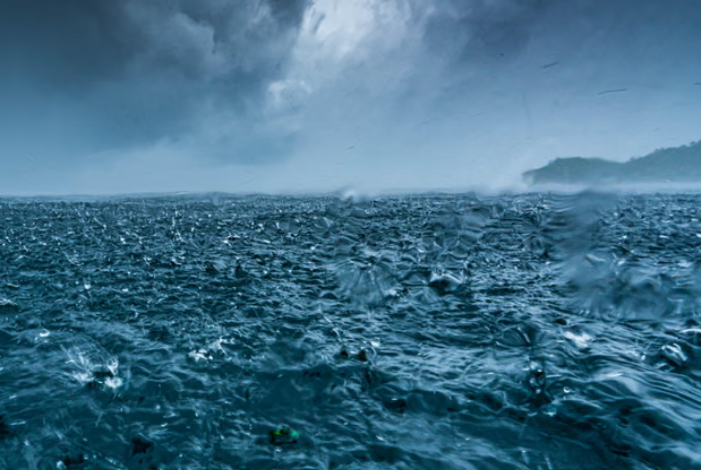The Gulf Stream May Shut Down This Century — Scientists Warn Europe Could Freeze

A giant Atlantic “conveyor belt” that keeps Europe relatively mild in winter is showing troubling signs of weakening — and scientists now warn it could collapse within decades, not centuries.
At the heart of the concern is the Atlantic Meridional Overturning Circulation (AMOC), the system of ocean currents that carries warm water north and cold water south. It’s part of the Gulf Stream, the famous current that delivers tropical heat to northern Europe and keeps London, Paris, and Berlin far warmer than cities on the same latitude in Canada.
But new research led by Dutch scientists at Utrecht University suggests the AMOC may be far closer to a tipping point than previously thought. Their models, published this week, show that under a “moderate” warming scenario — roughly the 2.7°C of warming we’re currently on track for — the system could begin collapsing around 2063. Under high-emissions scenarios, that timeline could be pushed forward to as early as 2055.
“This is a wake-up call,” said EU Climate Commissioner Wopke Hoekstra, who warned that the Gulf Stream could collapse “in our lifetime.”
The consequences would be brutal. Europe could face much colder winters — despite global warming — while summers would grow hotter and drier, hammering crops and water supplies. Rain belts could shift across the tropics, threatening food security for millions. On the US East Coast, sea levels would surge as the weakened current fails to push ocean water away from shore. Fisheries and hurricane patterns could be disrupted in ways scientists are only beginning to map out.
“It’s not some far-off Hollywood plot,” said Sybren Drijfhout, chair of ocean and earth science at the University of Southampton, who co-authored a related study. “The models show the tipping point is likely to be passed within the next few decades.”
Indeed, the AMOC is already at its weakest in 1,600 years, according to paleoclimate data. Scientists believe melting Greenland ice and Arctic warming are dumping fresh water into the ocean, disrupting the delicate balance of salinity and temperature that keeps the current flowing.
The new Utrecht analysis looked at 25 climate models and compared different emissions scenarios:
- High emissions (4°C warming): ~70% chance of collapse.
- Moderate emissions (2.7°C warming): ~37% chance.
- Low emissions (Paris Agreement, <2°C): still ~25% chance.
For context, until recently many researchers thought the odds of collapse before 2100 were closer to 10%.
“Even a 10% chance would have been too high for comfort,” said Prof. Stefan Rahmstorf of the Potsdam Institute for Climate Impact Research. “Now we’re talking about risks of one-in-three or worse.”
Not every study predicts a full shutdown before 2100. A UK Met Office team argued collapse is more likely after the turn of the next century. Still, even that study admitted “major weakening” is expected this century — enough to alter Europe’s climate significantly.
“The ocean is already changing,” said Dr. Jonathan Baker of the Met Office. “Even if total collapse is unlikely, weakening alone could be devastating.”
And some researchers warn the models may be underestimating the speed of change, since many don’t factor in accelerating ice melt from Greenland.
European leaders are taking notice. Earlier this month, EU Vice President Teresa Ribera suggested the AMOC should be treated as a national security issue for Europe. Hoekstra, meanwhile, vented frustration that climate urgency has slipped down the political agenda.
“There’s a sense that climate change has taken a backseat because we’re so busy dealing with other crises,” he said. “But these findings are a serious climate wake-up call.”
The collapse of the AMOC — once dismissed as “low likelihood” — can no longer be considered a fringe scenario. Scientists say the next 10–20 years may determine whether the tipping point is crossed.
And unlike politics, ocean physics doesn’t negotiate.
If the Gulf Stream falters, Europe could face a future of frozen winters, parched summers, and rising seas — a chilling reminder that even one of Earth’s most stable systems is now in play.
The Guardian, Politico, the Daily Mail contributed to this report.








The latest news in your social feeds
Subscribe to our social media platforms to stay tuned